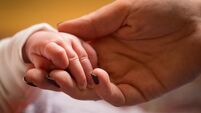Letter to the Editor: Tipping the scales in favour of a healthy childhood
In 2019 do we cherish all our children equally? Young children in their school uniforms hungry and tired living in temporary accommodation, with limited access to nutritious food. If we can’t provide suitable housing for our children how are parents expected to feed them nutritious food? This can only add to the number of Irish children already presenting with diet-related problems. According to the Economic and Social Research Institute (ERSI), obesity and diabetes is on the rise among nine-year-olds in Ireland and across the EU.
The rise in childhood obesity in Ireland is a significant concern and needs to be dealt with it. Obesity at a young age does not just affect a child’s chance of having a high-quality childhood, but it also leads to life-long issues. Children who are obese will have excess non-lean body mass, known as adipose. Excess adipose is often associated with lifelong illnesses such as asthma and type two diabetes, which is on the rise in Ireland but can be managed through a healthy diet.











